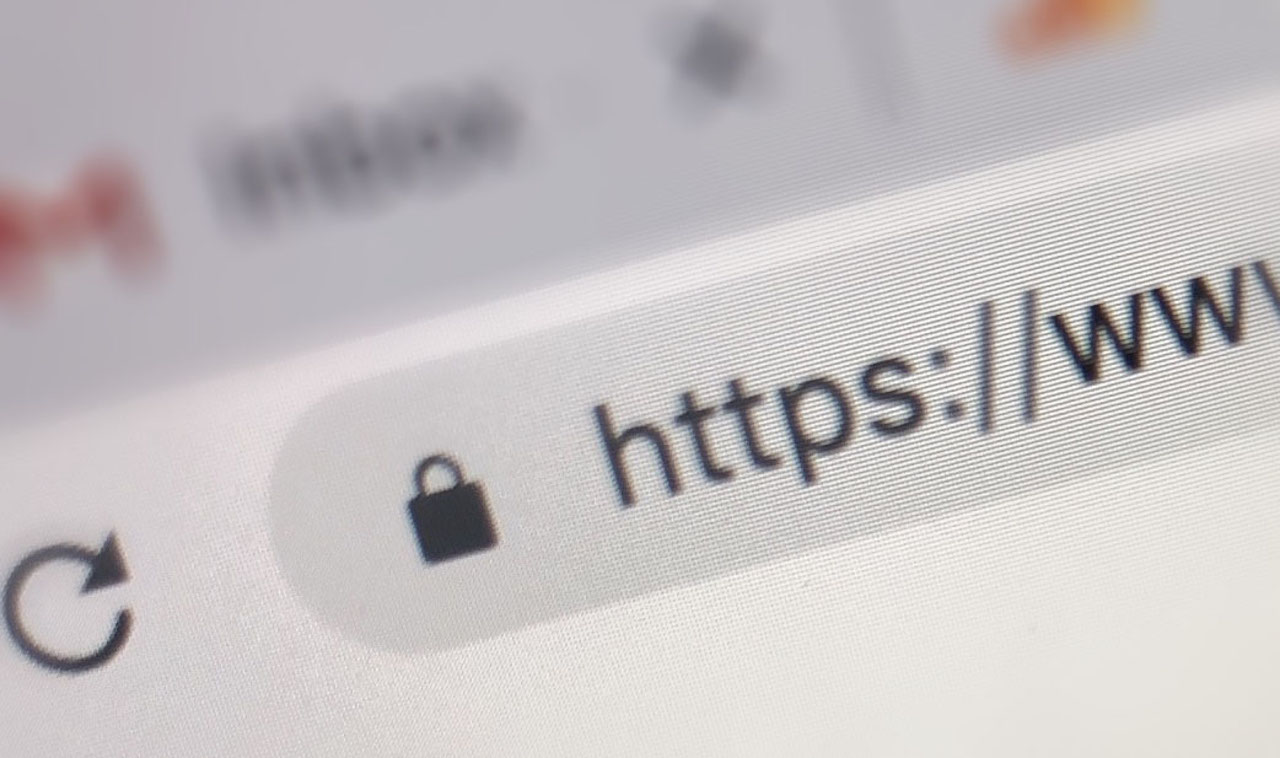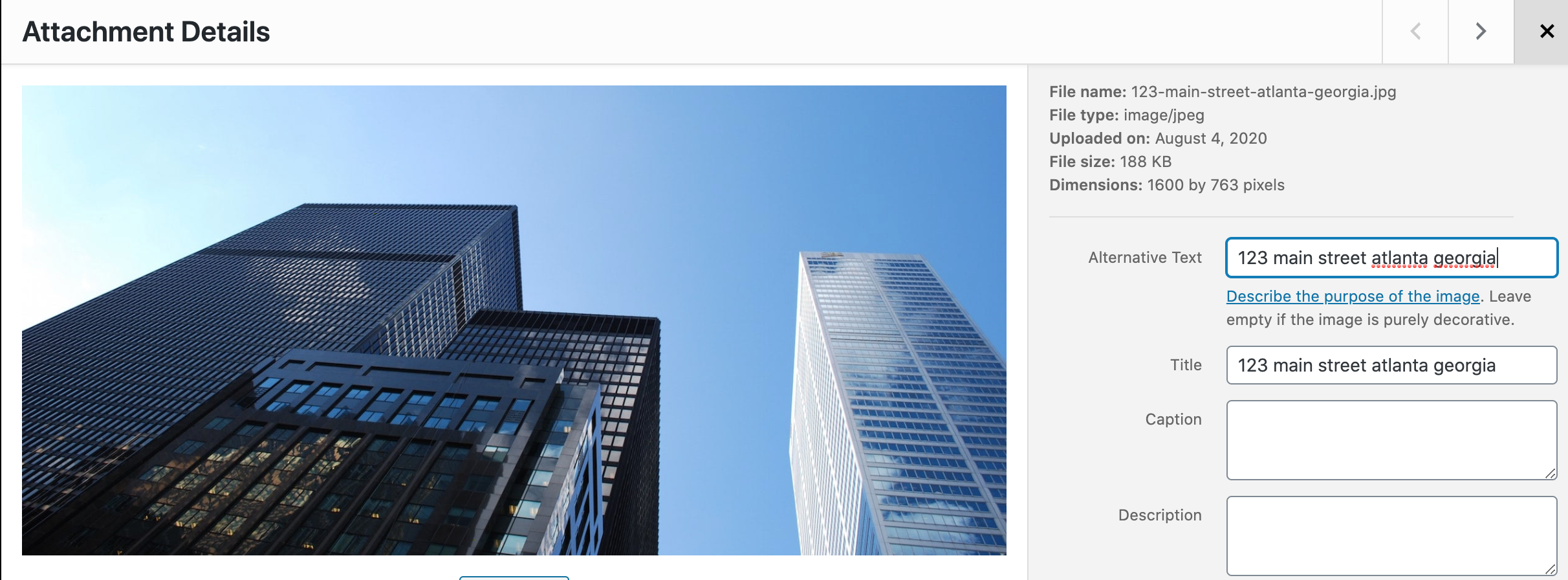Basic SEO Checklist for Newly Built Commercial Real Estate Websites
What is SEO and why is it important?
Search engine optimization is simply doing everything possible to improve or optimize factors on your website that will then improve how it ranks in search engine results. Your website’s content, user experience, and a variety of technical factors affect how Google and other search engines view (and subsequently rank) your website. Optimizing all these bits and pieces is a great way to increase the quality of any site by making it faster, more user friendly, and as easy as possible to navigate.
Luckily for all of us, there are many factors that can directly be controlled on your website and that directly impact how Google ranks your content. Even if you aren’t a digital expert yourself – and you don’t happen to have one on your in-house team – you can definitely make some changes that will benefit your business in both the short and long term.
Why is SEO important in the world of commercial real estate?
As more and more buyers and tenants utilize Google to research properties and opportunities, SEO visibility continues to become increasingly more important. Therefore, investment in SEO is one of the most efficient and impactful ways that a commercial real estate firm can choose to give themselves a truly competitive edge in 2020 and beyond via the use of online marketing.
In order to help potential prospects find your CRE firm, or discover your property listings in a crowded market, you have to make sure that your website is easily found by those who need you. This is where SEO comes in!
We’ve split this basic guide to SEO into three sections: the first one for the basics of SEO, the second for on-page SEO, and the third for off-page SEO.
SEO Basics
There are three steps you’ll want to take to get your basic SEO set up up and running:
- Google Analytics
- SEO plug-in
- SSL certificate
1. Set up Google Analytics
It’s hard to make the right decisions without access to the right data. Google Analytics is a free analytics tool that allows you to view data and insights into your website, such as who is visiting your site, where they are coming from, how they engage with your website, how much time they spend on every page, and more. By getting this set up right from the start, you’ll very easily be able to evaluate where you are succeeding, and where you need to put in a bit more work.
2. Install an SEO plug-in
There are a variety of popular SEO plugins available that make it incredibly easy to optimize your WordPress site for search engines (Yoast and All-In-One SEO are a few examples). The best part about using a plug-in is that it makes the very technical parts of SEO less technical for the user. After installation, simply follow the lead of the plug-in.

3. Add an SSL Certificate
Secure Socket Layers certificates, commonly called SSL Certificates, are small data files that allow for secure connections to be made between a browser and the web server. SSL Certificates keep personal information secure by encrypting it so that it is only readable by the intended recipient. Google started using the use of this security factor as a metric in search engine algorithms back in 2014, and now they give improved rankings to websites that have SSL certificates – the idea being that the use of these tactics will continue to make the internet safer for everyone.
On-page SEO for new commercial real estate websites
On-page search engine optimization is all about getting your website’s pages to be as palatable as possible for search engines and users alike. This includes the optimizing of your code and technical set up issues, the user-friendliness of the site, and the text and visual content that you use. On-page SEO is essentially the technical presentation of your website to Google.
Some aspects of on-page SEO that we’ll be discussing include:
- Page tags and meta descriptions
- Optimize images
- External linking
- Internal linking
4. Optimize your page title and meta description
Every page of your website should include an optimized page title and meta description. The meta description is what users see when they find a page of your site in Google search listings. This really affects who clicks through your link!
Your meta description should be clear and easy to read, with details about what the user will find if they click through to your page. Try to use the allotted 160 characters, and don’t forget to use your chosen keywords as well. Finally, your page title should clearly describe what the page is about, and again, it should use all relevant keywords at least once within the 70 characters that you are allowed.

5. Optimize images
There are a few things to keep in mind when it comes to optimizing images. Essentially it’s a two part job – first you need to update and optimize the file names themselves, and then do the same thing to the image alt tags used on the website.
When you save your image, use a descriptive file name that accurately describes the image. Then when you add that image to your page, give it a descriptive alt tag. Well-optimized images will also help you to rank in image search on Google.
6. Make use of thoughtful external linking
External linking is about showing Google that the content on your website is trustworthy and useful. By linking to trusted websites like Wikipedia, The New York Times, and important trade publications in your vertical, for example, you will demonstrate the authority of your own website. Try to link out to 5-6 authority sites in each article that you write, and on every piece of content you publish on your site. This is especially relevant to your news and blog pages when you’re sourcing different data points.
7. Leverage internal linking
Another simple, but useful, thing to do! Essentially for every new piece of content that you publish on your site – blog posts, announcements, etc – make sure you link to other relevant pages on your site. These could be other relevant blog posts, team pages, property listings, contact information, etc.
Off-page SEO for new commercial real estate websites
Off-page search engine optimization is basically everything you do away from the nuts and bolts of your website to raise the ranking of the page on search engines. This includes activity that is completely offline as well! Off-page SEO is all about getting Google and other search engines to see your website as trustworthy, authoritative, and useful.
Some aspects of off-page SEO that we’ll be discussing include:
- Backlinks
- Social media
- Press
- Community building and outreach
8. Get relevant backlinks
Backlinks are links that come back to your website from various locations around the internet. Since commercial real estate is a local game, you can focus on gaining links from local property listing sites, local newspapers or blogs (via writing guest articles, for example) and getting recognition from any local organizations that your company may be involved in.

9. Set up all your social media channels (and don’t underestimate them)
Social media often gets a bad reputation, but it can provide a million little signal boosts to Google that your website is a font of high quality, super relevant content. No, a retweet on Twitter, a like on Facebook, or a new connection on LinkedIn aren´t going to put you at the top of page one of Google, but the accumulated effect of dozens of smaller interactions can generate visibility, impact your rankings, and grow your brand awareness on and offline.
10. Look for local press
Don’t underestimate the usage of good old-fashioned media when it comes to your digital marketing as well. Carefully targeted and well-timed press releases are a great tool, and getting on a first name basis with local reporters can be very useful. PR isn’t dead, it just looks a little different these days!
11. Focus on outreach and community building
One of the most important but often most neglected parts of SEO in commercial real estate is the leveraging of real world relationships to bolster all parties. By networking with those in your field, other local businesses, relevant organisations, working with local charities, taking part in local events and just generally being an active part of your community, you can generate online links from offline efforts. Commercial real estate as a field is particularly well-suited to blending the worlds of off and online in this way.
Bonus SEO specifically for Commercial Real Estate websites
- Links to properties
- Links to team pages
- News section or blog
12. Property specific targeting
There are some specific options for SEO in the commercial real estate industry, and property specific targeting is one of them. Where possible, every property you have should have its own page (hopefully with a standalone URL), and that page should target the property address, name, and the appropriate location keywords.
13. Team page linking
Having a team page and linking to it from as many places as possible is a great way to bolster an important section of the website. As real estate depends very much on face-to-face client relations, a well put together team page that introduces the members of your organization will most likely be an often-visited section of your website. After all, after your properties your team members are typically what your clients will search for most on Google. Make sure that that search leads to your website by having a comprehensive, well put together team page!
14. Add a new section or blog
Having a news section or a blog is critical when it comes to generating new content and regularly indicating to Google that your site is growing, and therefore you are an up-to-date resource of information to potential site visitors. Be sure to target specific keywords for your market and service line, such as “office leasing Houston”, for example. Knowing that you regularly publish useful, relevant and timely content also provides a reason for your clients to regularly come back to your website.
FREE SEO Checklist
Need a SEO checklist? View our real estate SEO Checklist template (Google Sheet) and customize it to your property marketing needs here.



